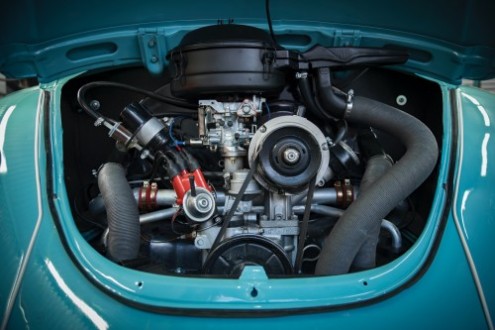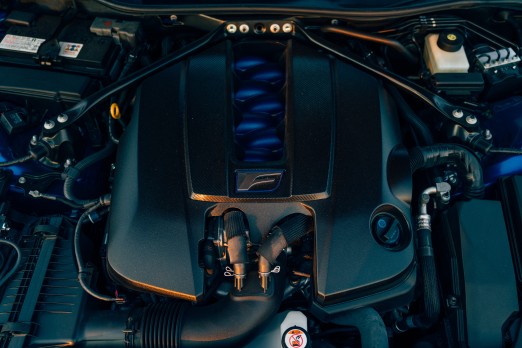An internal combustion engine’s exhaust manifold is an essential part as it is responsible for removing exhaust gases from the engine cylinders. Although the exhaust manifold’s main job is to direct these gases safely out of the engine, problems can happen, and oil leaks are one frequent worry. For owners of automobiles, an oil leak in the exhaust manifold may be frustrating since it not only reduces engine performance but also creates worries about damage and the need for repairs.
Importance of maintaining a leak-free exhaust system:
It is imperative to maintain an exhaust system free of leaks for several important reasons. Primarily, the exhaust system is essential for securely directing dangerous gases produced during combustion away from the engine and passenger compartment. This vital function is jeopardized by an exhaust system leak, which lets harmful substances like carbon monoxide into the car’s cabin and puts the occupants’ health in danger. Furthermore, a properly functioning exhaust system enhances engine performance and fuel economy. Unwanted leaks can throw off the precisely balanced exhaust gas mixture, reducing engine power, increasing fuel consumption, and degrading the vehicle’s performance.

Causes of Exhaust Manifold Oil Leaks:
There are several causes of exhaust manifold oil leaks, all of which contribute to the otherwise sealed system breaking down. It is essential to comprehend these factors to accurately diagnose and treat the problem.
- Worn Gaskets: Gaskets used on exhaust manifolds ensure a good seal between the engine block and the manifold. Due to the extreme heat produced by the engine, these gaskets may eventually wear down, losing their ability to seal and causing oil to leak out.
- Cracked Manifold: During engine running, the exhaust manifold is exposed to elevated temperatures and continuous stress. This may cause fissures to develop on the manifold over time. If these fractures are not fixed right away, they can get worse over time and create a channel for oil to flow out.
- Faulty Seals or O-rings: Many parts of the exhaust system, such as the joints connecting the pipes to the manifold, rely on seals and O-rings. Leaks might occur from these spots if the seals break, or the O-rings wear out.
- Engine Vibrations: The engine’s continuous vibrations can cause fasteners, such as those holding the exhaust manifold in place, to come free. This may leave spaces for oil to leak through.
- Excessive Oil Pressure: Oil can pass through gaskets and seals due to high oil pressure within the engine. This is more likely to happen if there are problems with the engine, including a clogged oil route or a broken oil pressure regulator.
- Poor Installation or Maintenance: Oil leaks may result from improper exhaust manifold installation or from skipping regular maintenance. It is imperative that bolts be installed with the proper torque specifications, and routine checks can assist in spotting such problems before they become serious.
- Corrosion and Rust: Rust and corrosion may be possible in areas where the exhaust manifold is exposed to severe weather. Because of this corrosion, the metal becomes weaker and more prone to leaks and fissures.
Impact of engine heat and stress on the manifold:
The exhaust manifold faces several difficulties that might eventually compromise its structural integrity since it is an engine component that is subjected to extreme heat and stress. Determining the effects of engine heat and stress on the manifold is essential to troubleshooting and putting maintenance plans into action.
- Thermal Expansion and Contraction: The exhaust manifold experiences frequent cycles of thermal expansion and contraction due to the engine’s severe operating temperatures. The material of the manifold is under stress due to this continuous change in size and shape, which might result in fatigue, microcracks, or the development of stress points.
- Material Fatigue: The exhaust manifold is susceptible to thermal cycling due to the elevated temperatures produced by combustion, especially when acceleration and high load conditions are present. The metal of the manifold may deteriorate, lose its flexibility, and shatter more easily because of material fatigue brought on by this heat stress over time.
- Oxidation and Corrosion: Elevated temperatures and exposure to exhaust gases foster an atmosphere favorable to corrosion and oxidation. This is particularly true in the case of steel or cast-iron manifolds. Because corrosion degrades a material, it is more prone to failures brought on by stress.
- Vibration and Mechanical Stress: The exhaust manifold is subjected to additional strain while accelerating or decelerating quickly, as engine vibrations and mechanical strains increase. Especially in areas of weakness or concentrated load, these vibrations may exacerbate the occurrence of cracks or fractures in the manifold material.

Symptoms of Exhaust Manifold Oil Leaks:
To treat problems quickly and save more damage, car owners and mechanics must recognize the signs of exhaust manifold oil leaks. The following are important signs that might point to the existence of an oil leak in the exhaust manifold:
- Burning Smell: Leaked oil can emit a strong burning smell when it comes into touch with heated engine parts. When the car is accelerating or idling, a strong stench coming from the manifold may be detected by the driver.
- Smoke from Engine Compartment: In more serious situations, visible smoke coming from the engine compartment might be the consequence of burned oil. When the engine is running, this may be seen, and the car may leave a substantial smoke trail that indicates a serious oil leak.
- Decreased Engine Performance: Leaks of exhaust manifold oil can impact the overall performance of an engine. When pushing the accelerator pedal, drivers can notice a drop in power, a reduction in acceleration, or a lack of response. These performance problems are frequently ascribed to the contaminated combustion process caused by oil.
- Increased Fuel Consumption: Fuel consumption may rise because of incomplete combustion caused by oil leaks that reach the combustion chamber. An oil leak in the exhaust manifold may be the reason for a sudden drop in fuel economy that does not seem to be related.
Explanation of how leaking oil can cause a burning odor:
Hot surfaces, especially those connected to the engine and exhaust system, may come into touch with oil spilled within the engine compartment. The process of thermal breakdown, or pyrolysis, is what happens to the spilled oil due to the extreme heat produced during burning.
The following explains how a burning smell might be caused by oil leaks:
- Contact with Hot Surfaces: The burning of gasoline causes engine parts, such as the cylinder head, exhaust pipes, and exhaust manifold, to heat up quickly. These heated surfaces may come into direct touch with oil that is seeping out of the leak.
- Pyrolysis: Many engine components, including the cylinder head, exhaust pipes, and exhaust manifold, heat up rapidly as gasoline burns. Oil pouring from the leak may come into close contact with these hot surfaces.
- Vaporization: The heat from pyrolysis can cause the smaller components to evaporate or condense into tiny droplets. The air in the engine compartment is mixed with these vaporized oil particles.
Solutions and Repairs:
Finding specific solutions and making the necessary repairs are necessary to address exhaust manifold oil leaks and maintain the engine and exhaust system operating correctly. This is a thorough tutorial on the actions you may take:
- Gasket Replacement:
- Determine which gaskets are leaking.
- Take off the manifold for exhaust.
- Thoroughly clean the mating surfaces.
- Put in a brand-new, superior gasket.
- After reassembling the exhaust manifold, twist the bolts to the recommended level.
- Welding Cracks:
- consider expert welding if the manifold has fractures.
- After removing the manifold, tidy up the fractured area.
- Use welding methods appropriate for the manifold material.
- Check for any further fissures and fix them.
- Put the manifold back in place firmly.
- Seal and O-ring Replacement:
- Determine which O-rings or seals are causing the leak.
- Replace the broken O-rings or seals with new, suitable ones.
- Achieve correct alignment and seating while installing.
- Examine any leaks following replacement.
- Addressing Loose Bolts:
- Examine each bolt holding the exhaust manifold in place.
- Adjust any loose bolts to the torque indicated.
- Think about changing worn-out or damaged bolts.
- To stop further loosening, use thread-locking compound or locking washers.
- Inspect and Replace Damaged Components:
- Check for damage to the whole exhaust system.
- Replace any parts that may have been impacted by the oil leak, such as pipelines and catalytic converters.
- Preventive Maintenance:
- Check for leaks regularly by looking at the exhaust manifold and the surrounding parts.
- Address problems as soon as possible to stop more harm.
- When replacing, think about utilizing high-quality gaskets and parts.
- Professional Assistance:
- Consult a qualified mechanic if you are doubtful or if the problem continues.
- They can conduct a comprehensive examination and suggest the best courses of action.
- Use Exhaust Repair Paste or Putty:
- Use putty or exhaust repair paste for small cracks or leaks.
- As directed by the manufacturer, apply the paste to the damaged area and allow it to heal.
- This may offer a short-term fix for minor leaks.
- Replacement of the Exhaust Manifold:
- It could be required to replace the exhaust manifold in its entirety if there is severe damage or widespread fractures.
- Select a premium replacement component that fits the make and model of your car.
Frequently asked questions:
Why does oil leak out of the exhaust manifold?
Due to deteriorated gaskets, manifold fissures, or malfunctioning seals, oil may leak from the exhaust manifold. The engine compartment’s extreme heat and stress can lead to seal failure, metal manifold cracking, and gasket degradation, all of which can let oil leak out.
How dangerous is an exhaust manifold leak?
Because it can release harmful gases into the car’s interior and endanger passengers’ health, an exhaust manifold leak is risky. Fuel economy and engine performance may also be impacted.
How can I stop the oil leak in my exhaust system?
Replace old gaskets or seals and use high-quality replacement components to stop oil leaks in exhaust systems.
Is oil in the exhaust manifold considered normal?
No, oil in the exhaust manifold is not typical; instead, it might be a sign of a leak, worn gaskets, or issues with the engine.
Conclusion:
In conclusion, fixing exhaust manifold oil leaks is critical to preserving the engine and exhaust system longevity and performance of your car. Appropriate diagnosis and prompt resolution are essential to stop more damage, regardless of the cause—wearing gaskets, fractures, or malfunctioning seals. You may restore the integrity of the exhaust manifold by applying suitable repairs, such as gasket replacements, welding for cracks, or seal replacements, together with a methodical inspection process and diagnostic instruments. The use of high-quality components and routine preventive maintenance, such as visual inspections, are essential for preventing problems in the future. Recall that expert aid is easily accessible for intricate repairs. You may contribute to the overall performance, safety, and lifespan of the exhaust system by being watchful and proactive in ensuring that there are no leaks.

